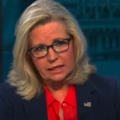When President-elect Donald Trump speaks, the world listens. And recently, Trump turned his attention to the Panama Canal, sparking a wave of curiosity, confusion, and, unsurprisingly, controversy. His suggestion that the U.S. might “take back” control of the canal may sound dramatic, but for those who’ve followed Trump’s moves, it looks more like a classic negotiating tactic. Let’s dive into why this is likely another Trumpian effort to get America the deal it deserves.
The Panama Canal: A Global Trade Lifeline
First, a quick refresher on why the Panama Canal matters. This 51-mile engineering marvel connects the Atlantic and Pacific Oceans, enabling about 14,000 ships annually to avoid the long and dangerous journey around South America. The canal accounts for 2.5% of global seaborne trade, making it a vital artery for everything from liquefied natural gas to cars and coffee.
The U.S. built the canal in the early 1900s, losing countless American lives to disease and grueling labor. After nearly a century of operation, the canal was handed over to Panama in 1999 following the Torrijos-Carter Treaties of 1977. These agreements aimed to foster goodwill and acknowledge Panamanian sovereignty while ensuring the canal’s neutrality for all global trade.
Trump’s Comments: Bold or Brilliant?
Speaking to supporters at a conservative event, Trump called out Panama for charging “ridiculous” tolls that unfairly burden American ships. His comments, delivered with his signature flair, included a cheeky post on Truth Social: “Merry Christmas to all, including the wonderful soldiers of China, who are lovingly, but illegally, operating the Panama Canal.”
While his critics were quick to cry foul, seasoned Trump-watchers recognized a familiar pattern: the art of the deal. Trump’s rhetoric often starts with a dramatic opening bid to set the stage for renegotiation. Could this be his way of leveraging Panama to revisit toll structures or reinforce U.S. influence over this critical trade route?
Chinese Influence: A Real Concern
One of Trump’s main arguments is the fear of the canal falling into “the wrong hands,” specifically citing China. While Panama’s President José Raúl Mulino dismissed Trump’s claims as “nonsense,” concerns about China’s growing influence in Panama are not unfounded.
In 2017, Panama severed ties with Taiwan and established diplomatic relations with China. A Hong Kong-based company, CK Hutchison Holdings, manages two major ports at the canal’s entrances, raising eyebrows in Washington. While there are no Chinese soldiers stationed at the canal, the U.S. remains wary of Beijing’s expanding footprint in critical global infrastructure.
Mulino’s Defiance
In response to Trump’s remarks, Mulino doubled down on Panama’s sovereignty. “The canal is Panamanian and belongs to Panamanians,” he declared, ruling out any negotiations over control or toll reductions. He also defended the current rates, citing economic challenges such as a historic drought that has impacted canal operations.
Mulino’s tough stance is understandable; no leader wants to appear weak or overly influenced by a foreign power. But Trump’s comments have already shifted the conversation, putting Panama’s toll policies and their impact on U.S. interests in the spotlight.
A Smart Negotiating Move?
For Trump, this isn’t just about the Panama Canal—it’s about reinforcing American strength and ensuring fair deals. His critics may label his approach as bluster, but history suggests otherwise. During his first term, Trump successfully renegotiated trade deals like NAFTA (now USMCA), proving his ability to turn bold rhetoric into tangible wins for the U.S.
The Panama Canal may be another piece on Trump’s negotiating chessboard. By calling out perceived inequities, he’s setting the stage to push for better terms that benefit American businesses and taxpayers. And if history is any guide, Trump’s opening gambit might just lead to a deal that realigns the canal’s operations closer to U.S. interests.
Final Thoughts
Whether you view Trump’s comments as strategic genius or calculated theatrics, one thing is clear: he’s putting the Panama Canal back on the map for American policymakers and voters alike. The canal is a symbol of U.S. ingenuity and global leadership, and Trump’s efforts to revisit its terms reflect his commitment to putting America first.
What do you think about Trump’s bold approach to the Panama Canal? Is this the art of the deal in action, or is he pushing the envelope too far?
WE’D LOVE TO HEAR YOUR THOUGHTS! PLEASE COMMENT BELOW.
JIMMY
Find more articles like this at steadfastandloyal.com.
Having trouble? If your comment doesn’t post, submit another comment right after it that says: Jimmy, please approve my comment that didn’t post.














It should have never been allowed in the first place so yes we need to take control of the canal and never given up again we built it and all these ships need to be drained and cleaned like it use to be we are getting invasive fish and snails that are endangering our waters same as the medicine, and our food supplies, must go back to checking rechecking that they are safe and ok to eat America was a safe country not anymore cutting inspection’s and not hiring good people, that are honest if caught taking bribes, or just not doing their job prison time let to many get away with looking the other way
When then-President Jimmy Carter gave away the Panama Canal in 1977, there was very strong opposition by numerous Democrat and Republican Congressmen along with military and business leaders. The strategic, military and economic importance of the Canal to the United States cannot be overstated. For reasons still unknown, Carter’s naïve outlook on the United States as being a World-power defied all logic when he gave up America’s long-standing control of the Canal. China, rightfully so, did recognize the it’s importance and swiftly took over control from Panama. The Panama Canal is a chokehold on American trade and military might if China ever does (they are planning on it) try to embargo American trade or disrupt military logistics if a war breaks out. China already has a military contingent stationed in the Canal Zone to defend their interests. Trump is acting in America’s best interest to re-gain control over a vital logistics point for America. Never, ever trust a Democrat.